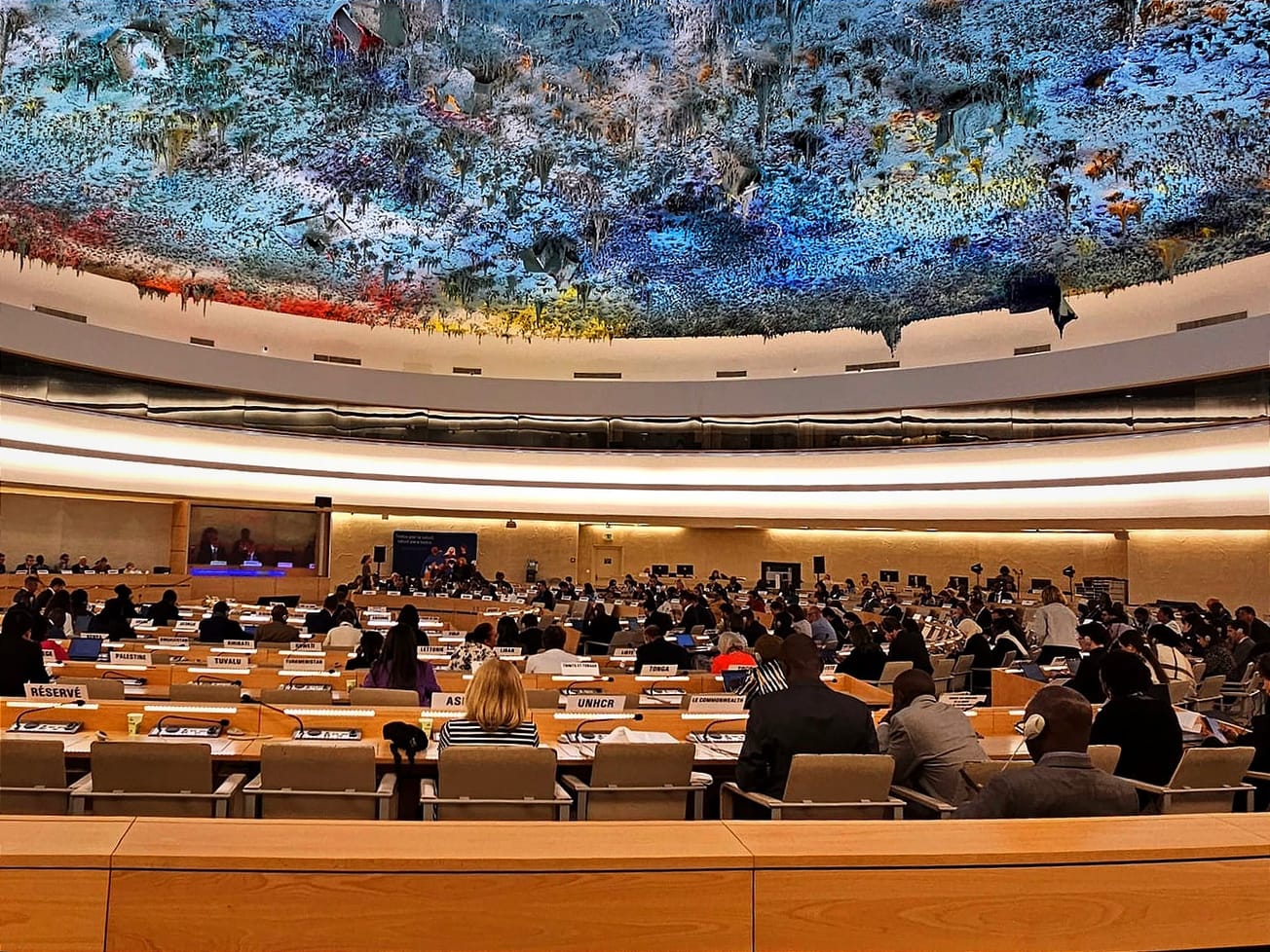GENEVA (AN) — As the epicenter of global efforts to hold nations to account for how they treat their citizens, the U.N. Human Rights Council also is the focus of China's "sustained efforts since 2018 to restrict the space" for its critics, according to a new report and media investigations.
The Chinese government uses its membership in U.N. human rights bodies and so-called GONGOs, or Chinese government-organized non-governmental organizations, to "deter and prevent independent NGOs and human rights defenders from engaging with the U.N. and to retaliate against those who do so," the International Service for Human Rights, an independent nonprofit organization, concluded in a report on Monday.
Raphaël Viana David, an ISHR program manager, says China has tried hard to bar independent voices from being hear at the U.N. in Geneva and New York. "This stands in direct contradiction to its self-portrayal as a reliable multilateral leader," he said. "At the core of its strategy lies a desire to shield itself from criticism, control narratives, influence human rights norm-setting, and weaken the independence of U.N. bodies."
China has defended itself against investigations into repression under President Xi Jinping’s decade-long rule. Human rights organizations and U.N. investigators say Chinese authorities have arbitrarily detained human rights defenders, tightened control over civil society, media, and the internet, and deployed invasive mass surveillance technology. The widespread crackdowns in Xinjiang, Tibet and Hong Kong have drawn widespread attention.
Specialists from the World Health Organization also pressed their secretive Chinese counterparts for more information about the spread of COVID-19 across China. Researchers identified several animal species that could have passed along the coronavirus that causes COVID-19 to people at an animal market in Wuhan, China, and Western governments have sought intelligence on whether the virus could have emerged from China’s Wuhan Institute of Virology.
The report coincided with the release of a report by the International Consortium of Investigative Journalists that China is "deploying a growing army of puppet organizations to monitor and intimidate human rights activists," and with articles by news organizations such as The Guardian, Le Monde, El País, The Washington Post, Tribune de Genève and Tamedia.
Thirty-three Chinese NGOs – up from just three in 2018 – showed up about 300 times on the lists of speakers at sessions held by the 47-nation Human Rights Council in Geneva last year, according to data collected by ISHR and analyzed by ICIJ. None of those NGOs criticized China and most of them were pro-China, ICIJ said after reviewing the speakers' statements.
China's government disputed the reports on Monday, saying "we oppose groundless accusation, vilification and smears by some ill-intentioned forces on China’s normal law enforcement and judicial cooperation."
"China carries out international law enforcement and judicial cooperation in strict accordance with the law, fully respects the laws and judicial sovereignty of other countries, and protects the lawful rights and interests of the persons concerned in accordance with the law," Chinese foreign ministry spokesman Guo Jiakun told a regular press briefing.
This is a developing story and will be updated.









